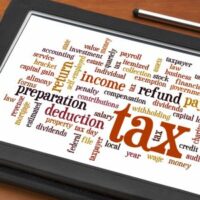Avoiding The Accrual Of Penalties And Interest On Unfiled Taxes

Although the deadline for filing taxes officially passed in mid-May, taxpayers who have not yet filed their taxes are not totally out of luck. In fact, taxpayers who are due refunds, but who missed the tax filing deadline, won’t be assessed a penalty for filing late. Regardless, taxpayers who missed the filing deadline and who didn’t request an extension should consider filing quickly to limit penalties and interest. If you have not yet paid your own taxes, you should consider consulting with an experienced Florida unfiled taxes lawyer about your next steps.
Additional Time to File Without Penalties
Some taxpayers who have not yet paid or filed their taxes can still do so without accruing any interest or penalties. This includes:
- Members of the military, who may qualify for a 180 day extension if they served or are currently serving in a combat zone;
- Support personnel who worked in combat zones or contingency operations in support of the Armed Forces; and
- Victims of natural disasters.
Fortunately, even those who don’t fall under one of these categories and so don’t qualify for an automatic extension can still avoid paying penalties and interest if they are owed a refund and file as quickly as possible.
Filing to Get a Tax Refund
The only way to collect a tax refund is to file a tax return. Fortunately, there isn’t a penalty for filing late if the taxpayer in question is owed a refund. The COVID-19 pandemic has, however, continued to cause delays with many IRS services, so many taxpayers who filed paper returns have still not received their refunds. Taxpayers who find themselves in this situation should avoid filing a second return, as doing so can cause further delays and other problems with their refunds.
Filing to Reduce Penalties and Interest
Even taxpayers who obtain filing extension are required to pay their taxes by the original deadline to avoid penalties and interest, while will start to accrue on any taxes owed after May 17th. In most cases, the “failing to file” penalty is five percent of the tax owed for each month that a return is late, up to five months. The failure to pay penalty, on the other hand, is .5 percent of the unpaid tax, which is assessed each month until 25 percent is reached or the tax is fully paid. Those whose returns are filed more than two months after the due date can expect to face a minimum penalty of either $435 or 100 percent of the unpaid tax, whichever amount is less.
Filing a return can help reduce these penalties, even for taxpayers who cannot pay off their full tax liability. Furthermore, many taxpayers qualify for other forms of penalty relief. Unfortunately, interest will continue to be charged on tax and penalties until the balance is paid off. Paying these amounts electronically is often the best way to go for taxpayers, as it is both secure and gives taxpayers immediate confirmation of payment.
An Experienced Nationwide Unfiled Taxes Attorney
If you have not yet filed your taxes and need help limiting your penalties, applying for a refund, or entering into a payment plan with the IRS, please call dedicated tax & IRS lawyer, CPA, and Former Special Agent FBI, Ronald Cutler at Ronald Cutler, P.A. at 386-490-9949 today.
Resource:
irs.gov/newsroom/with-the-may-17-deadline-in-the-past-file-taxes-now-to-get-refund-or-cut-penalties-and-interest



